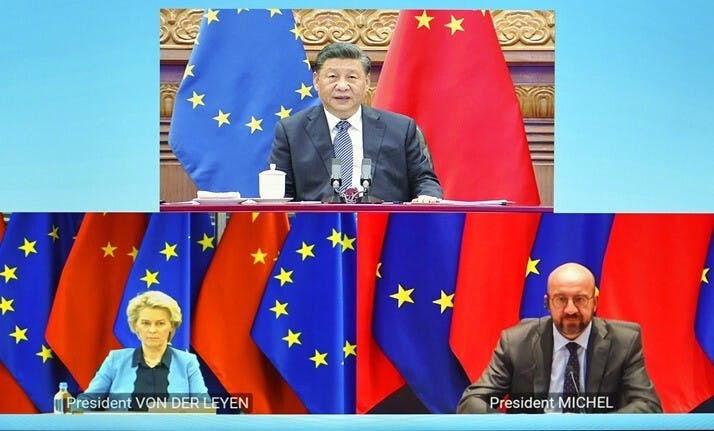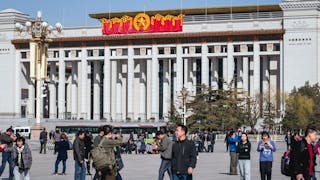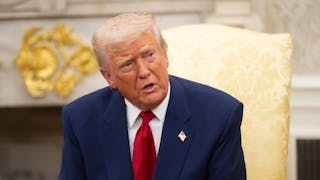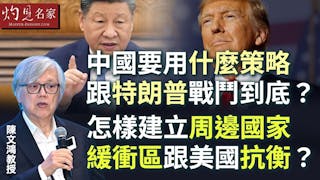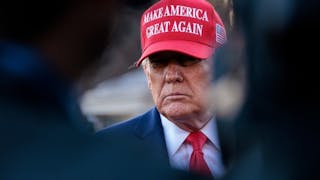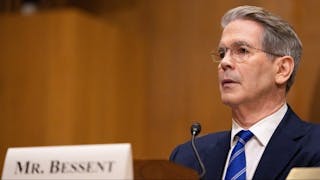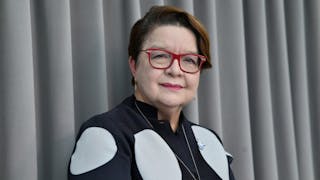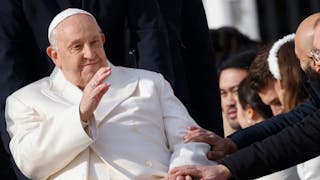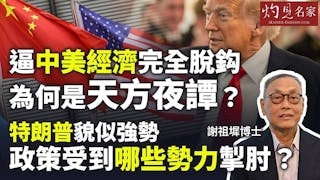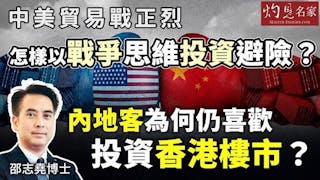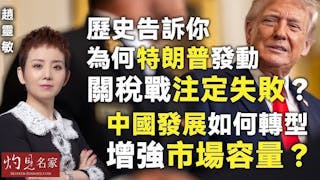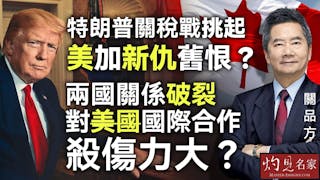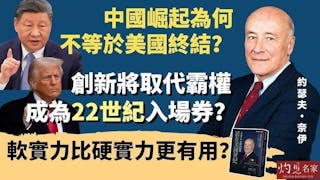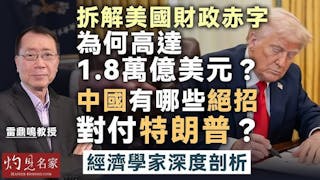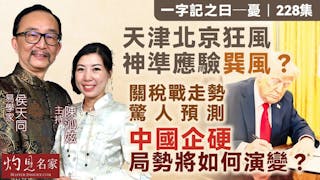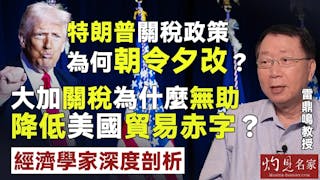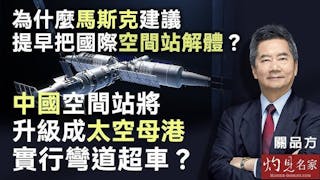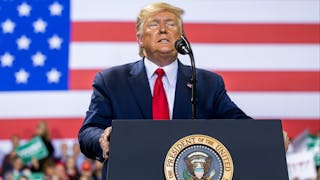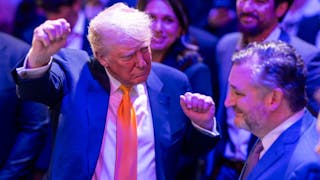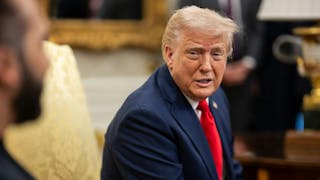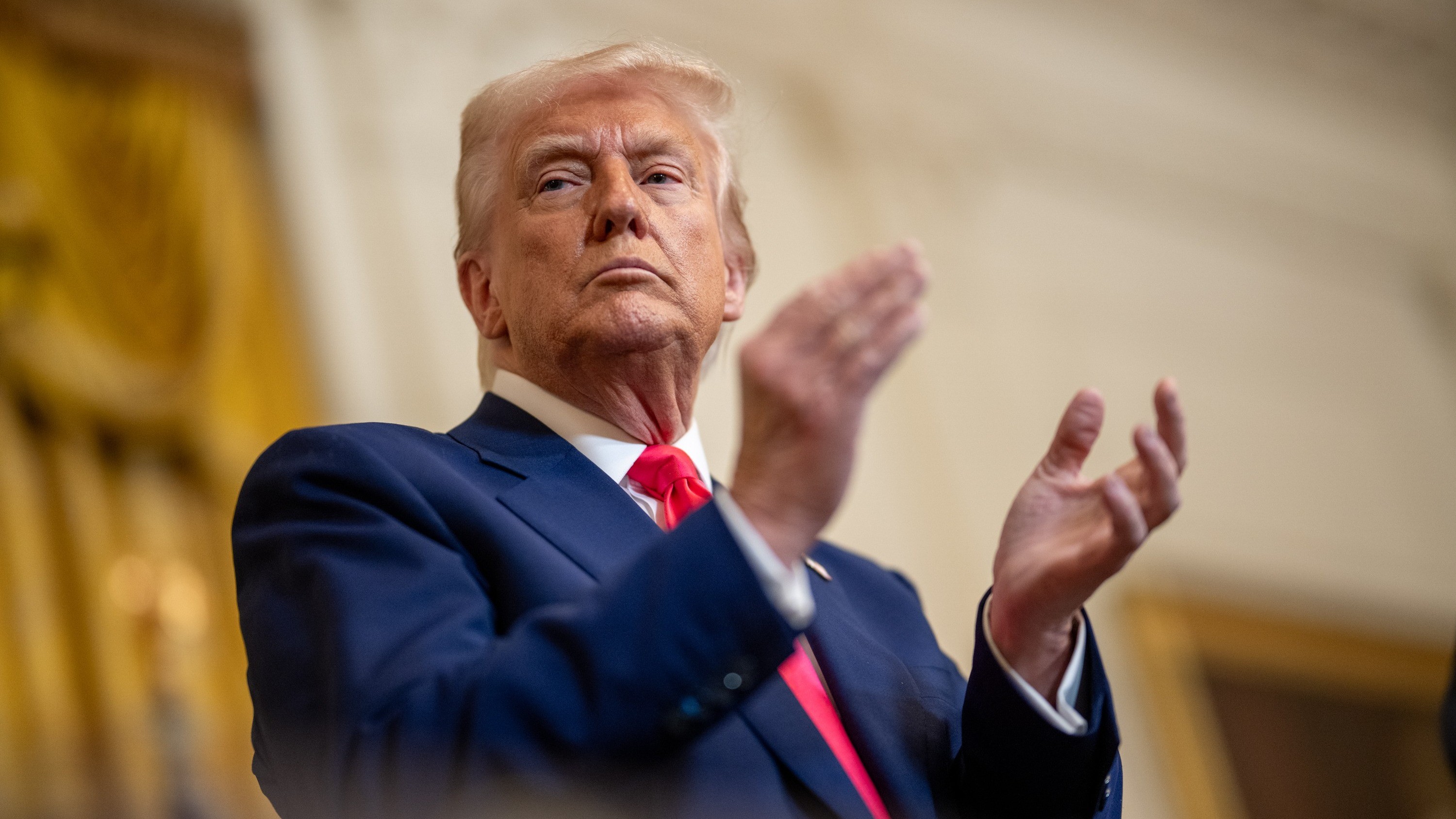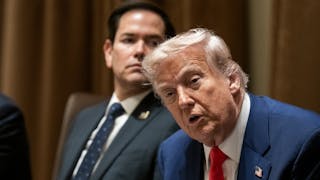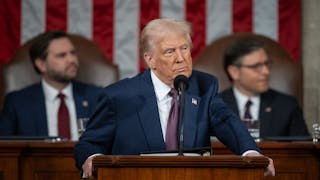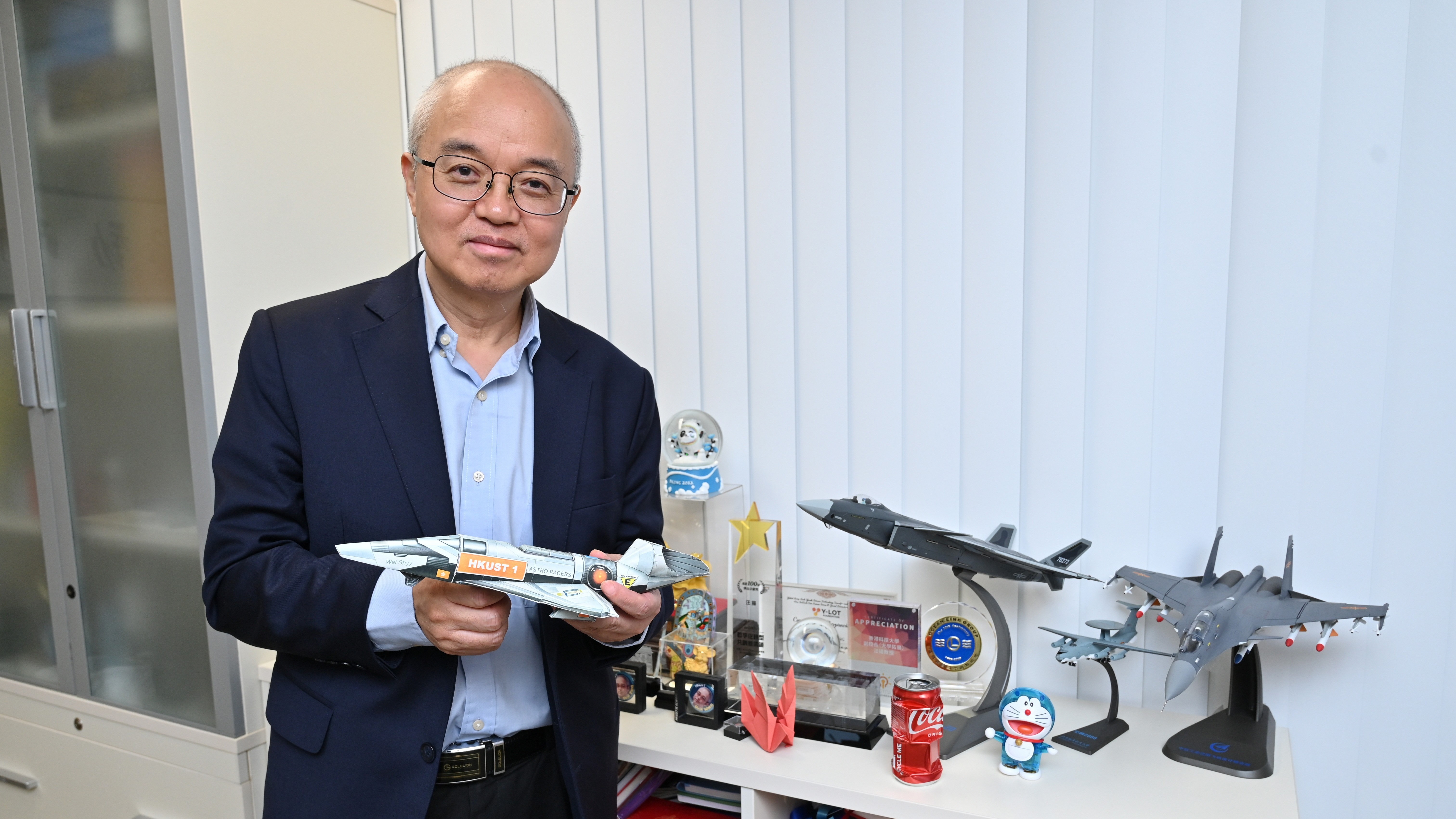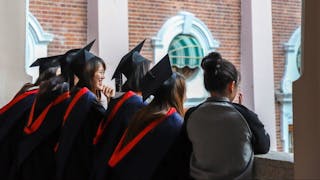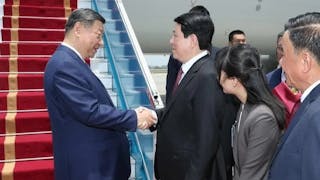3月的最後一周,中國領導人和外交部官員開展了一系列外交活動,就包括阿富汗的國家建設、人道援助,以及呼籲歐盟幫助解決俄烏衝突,與阿富汗及其鄰國和歐盟進行接觸。在「新冷戰」氣氛籠罩俄烏戰爭之際,表現外交上的自信,是中國對周邊國家和歐洲的外交政策的特點。
中國對俄烏衝突立場更趨中立
3月30日,國務委員兼外交部長王毅在安徽省東部屯溪市會見俄羅斯外長拉夫羅夫,就雙邊關係和烏克蘭問題進行會談。據新華社報道,王毅對拉夫羅夫表示,中俄關係經受住國際風雲變幻新的考驗,「展現堅韌發展勢頭」。王毅又表示,「雙方發展雙邊關係的意願更為堅定,推進各領域合作的信心更為牢固」。
據報道,拉夫羅夫表示,俄方將與中方一道,走向「多極、公正、民主」的世界秩序。兩國將反對霸權主義和強權政治,維護《聯合國憲章》宗旨原則。拉夫羅夫又表示,俄方致力於緊張局勢降溫,將繼續同烏進行和談。王毅支持俄烏雙方繼續和談,支持「局勢盡快實現降溫」,以避免「大規模的人道危機」。
在王毅和拉夫羅夫的會談中,中方強調了俄烏雙方和平與對話的重要性,同時肯定了2022年2月《中俄聯合聲明》中訂明的中俄密切經濟聯繫。另一方面,拉夫羅夫承諾,俄羅斯致力緩和與烏克蘭的緊張關係,並肯定「俄中國堅韌的雙邊關係」。
雖然中國已稍微轉向更中立的立場,遊說俄羅斯方面就烏克蘭衝突進行進一步的和平對話,但俄方面已確保中國不會輕易被美國及其盟友拉攏到不那麼親俄的立場。
動員鄰國參與阿富汗重建
3月31日,王毅在屯溪主持「阿富汗鄰國外長會」,這是助力阿富汗國家建設進程的重要平台。除了阿富汗臨時政府代理外長穆塔基(Amir Khan Muttaqi)外,其他阿富汗鄰國的外長也在場。卡塔爾副首相兼外交大臣穆罕默德(Sheikh Mohammed bin Abdulrahman Al Thani )、印尼外長蕾特諾(Retno Marsudi)等嘉賓應邀出席了外長會。
王毅強調,阿富汗正處在由亂及治的關鍵時期,包括鄰國在內的國際社會對阿富汗臨時政府施政也有不少關切。因此,阿富汗實現持久和平、可持續發展和推進對外關係任重道遠。王毅表示,中國和阿富汗鄰國都希望為阿富汗的發展做出貢獻,同時強調區內國家需要合作而不是相互對抗,平等相待而不是採取霸凌手段。王毅表示,國際社會應加大對阿富汗的投資,共同打擊恐怖主義、改善民生、發展阿富汗經濟。
對於王毅的善意,穆塔基對中國邀請阿富汗參加外長會表示感謝,並強調阿富汗「將永遠不允許外部勢力佔領其領土,也不會允許任何勢力利用阿富汗領土對抗其他國家」。和平共處是阿富汗政府奉行的原則。穆塔基補充說,美國匆忙從阿富汗撤軍,對當地設施造成了相當大的破壞,阿富汗臨時政府一直在重開學校,讓女孩子接受教育,並改善醫療保健以重建社會。
顯然,中國一直在採取果斷的外交來填補美國從阿富汗撤軍留下的政治和社會空白。中國將自己定位為中亞不結盟運動的領導者,試圖以善意重建阿富汗,並動員其他鄰國加入阿富汗重建國家進程的國際努力。
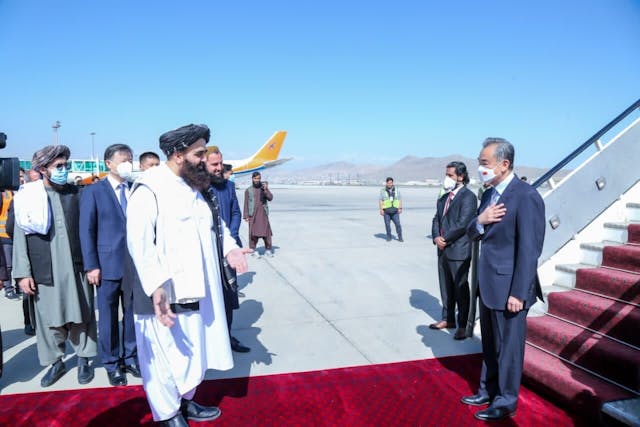
支持中亞伊朗打擊恐怖主義
3月31日,王毅會見烏茲別克副總理兼投資和外貿部部長烏穆爾扎科夫(Sardor Umurzakov),對中烏建交30年表示珍惜。王毅說,兩國合作不斷深化,中國可以在減貧、農業合作、醫療保健管理、應對新冠疫情等方面幫助烏茲別克。雙方同意加強在上海合作組織內的溝通協調。雙方又同意共同反對外部干涉,打擊恐怖主義、極端主義和分離主義。
同日,王毅會見塔吉克司法部長阿舒里約恩(Muzaffar Ashouriyon),就維護塔吉克國家獨立、主權、安全和繁榮達成共識。王毅表示,中國願意與塔吉克深化共建「一帶一路」。中國將為塔吉克的工業化、農業現代化和促進青年交流作出貢獻。除了投資、能源供應和產能等其他合作領域外,抗擊新冠病毒將是一項共同參與的合作任務。 阿舒里約恩表達了塔吉克對利用中藥合作抗擊新冠病毒的興趣。最後,兩國同意打擊恐怖主義、極端主義、分離主義和跨境罪案。
4月1日,王毅會見緬甸外長溫納貌倫,雙方同意擴大雙方經貿合作、抗疫合作,加快中緬經濟走廊建設,在維護領土主權獨立和完整方面深化合作。
同日,王毅又與伊朗外長阿卜杜拉希揚(Hossein Amir-Abdollahian)舉行會談。中方支持伊朗捍衛國家主權、尊嚴和正當權益。阿卜杜拉希揚表示,發展對華關係是伊朗的最高決策,包括擴大油氣供應合作,共同打擊恐怖主義,以及對可能利用阿富汗「挑起事端」的「東伊運」保持高度警惕。雙方同意抵制單邊制裁,暗示兩國不同意美國對俄羅斯實施經濟制裁的方式。王毅轉而評論稱,美方已成為單邊制裁「專業戶」,此舉「違反國際關係基本準則」。雙方還就伊核全面協議恢復履約談判交換了意見。
遊說歐盟對俄烏局勢勸和促談
4月1日,國家主席習近平在北京以視像方式會見了歐洲理事會主席米歇爾( Charles Michel )和歐盟委員會主席馮德萊恩(Ursula von der Leyen )。習近平表示,中歐有着廣泛共同利益和深厚合作基礎。他呼籲歐方形成自主的對華認知,奉行自主的對華政策,同中方一道,推動中歐關係行穩致遠。習近平補充說,中歐要帶頭維護以聯合國為核心的國際體系、以國際法為基礎的國際秩序、以聯合國憲章宗旨和原則為基礎的國際關係基本準則,「共同抵制陣營對抗思維復活、反對製造『新冷戰』,維護世界和平和穩定」。他又呼籲歐方為中國企業赴歐投資發展提供公平、透明的環境。
歐方則重申堅持「一個中國」原則,表示願同中方持續深化經貿、投資、能源、綠色發展等各領域合作,共同應對新冠肺炎疫情、氣候變化、生物多樣性保護等全球性挑戰,為促進世界和平、經濟增長和共同繁榮作出努力。
在烏克蘭問題上,習近平呼籲歐方勸和促談,加大對烏克蘭的人道主義援助,盡量減低歐洲地區的緊張局勢。他強調,不能再用「冷戰思維」來構建世界和地區安全框架。因此,中歐雙方要致力於「管控局勢,防止危機外溢」,「維護世界經濟體制、規則、基礎的穩定」。
同日,國務院總理李克強通過視像與米歇爾和馮德萊恩的會談,呼籲中歐加強對話溝通。李克強表示,中歐雙方要增進理解和互信,為世界和平作出貢獻。他呼籲雙方加強合作應對新冠疫情,建設數字經濟,保障能源和食品供應,維護供應鏈穩定,實現可持續發展,促進公平競爭和投資。
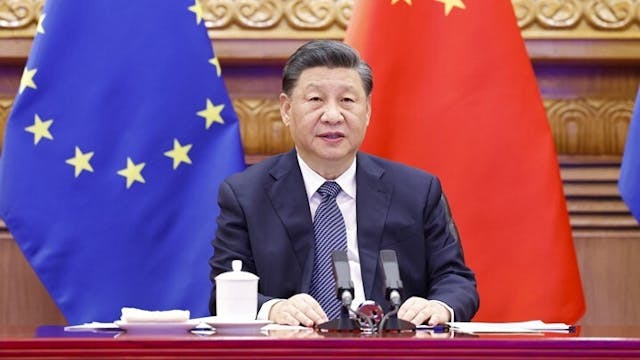
拒以「新冷戰」思維處理國際關係
從習近平主席、李克強總理和王毅外長的一系列外交活動來看,中國的外交和外交政策具有幾個特點:
首先,作為一個不結盟和反霸權的大國,中國熱衷於與俄羅斯保持良好的經濟關係,並強調俄羅斯需要促進與烏克蘭的和平對話。因此,中國已經從明確的親俄立場,輕微轉向更加中立的立場,這可以在2022年2月的《中俄聯合聲明》中看出來。
其次,中國致力通過獲得阿富汗鄰國的支持來提高阿富汗政權的管治能力,同時發揮地區大國的作用,為阿富汗的社會和經濟發展作出貢獻。因此,中國的發展模式,可以從其努力填補美國在阿富汗發展進程中留下的社會經濟和政治真空中看出。
第三,中國在外交上對烏茲別克、塔吉克、緬甸等鄰國採取積極進取的姿態,以深化「一帶一路」建設,鞏固中亞地區反恐的勢頭。
第四,從習近平、李克強與歐盟領導人視像會晤中的表態,可以看出中國的主動外交,表明中方決心在俄烏問題上採取更加中立的立場,同時希望說服歐盟領導人欣賞中方的立場,並為烏克蘭的悲劇尋求和平解決方案。中國外交思想的基礎是相信一種新的冷戰思維已經迫在眉睫,並一直在形塑俄烏衝突。因此,拉夫羅夫關於世界正在走向多極格局的言論,帶有與中國領導人相同的反霸權和反美色彩。
總而言之,習近平主席、李克強總理和王毅外長最近的一系列外交活動,顯示了中國外交政策的特點:對俄烏衝突採取更加政治中立的立場;呼籲歐盟尋求和平對話和解決烏克蘭問題;拒絕以「新冷戰」思維來處理國際關係;對於阿富汗新政權則強調國家建設,將「一帶一路」倡議延伸至中亞和歐洲國家,以及強調對影響中國國家安全的恐怖活動作鬥爭。
China’s Diplomatic Assertiveness from Afghanistan to Europe
The last week of March has witnessed a flurry of diplomatic activities by Chinese leaders and foreign ministry officials to reach out to Afghanistan and its neighbors as well as the European Union (EU) on a whole range of issues, including state-building and humanitarian aid for Afghanistan and the appeal to EU to help resolve the Russian-Ukrainian conflicts. Diplomatic assertiveness are the characteristics of the foreign policy of the People’s Republic of China (PRC) on its neighboring states and Europe at a time when a new Cold War is looming over the Russian-Ukrainian war.
On March 30, the Chinese Foreign Minister and State Councilor Wang Yi met Russian Foreign Minister Sergei Lavrov in Tunxi, the eastern part of China’s Anhui province, to discuss bilateral ties and the Ukrainian issue. According to the Xinhua report, Wang remarked to Lavrov that Sino-Russian relations have stood the test of changing international time with “strong resilience.” Moreover, Wang said that “both sides have a firmer will to develop bilateral relations and stronger confidence to advance cooperation in various areas.” Lavrov was reported as saying that the strategic communication between the two countries would promote a “multi-polar” world, and that both countries would “oppose hegemony and power politics” while upholding the purposes and principles of the UN Charter. Lavrov added that Russia is committed to easing the Russo-Ukrainian tensions with ongoing peace talks. In response, Wang supported the Russo-Ukrainian dialogue and the “de-escalation of tensions as soon as possible” to avoid “a large-scale humanitarian crisis.”
From the Wang-Lavrov discussion, China has emphasized the importance of peace and mutual dialogue between the Russian and Ukrainian side, while simultaneously affirming the close economic ties between China and Russia as stipulated in the February 2022 Sino-Russian Joint Statement. On the other hand, Lavrov promised the Russian commitment to ease tensions with Ukraine while trying to affirm the “resilient bilateral relations between Russia and China.
While China has moved to a slightly more neutral position lobbying the Russian side for peace and further dialogue over the Ukrainian conflict, the Russian side has ensured that China could not be easily wooed by the US and its allies to a less pro-Russian stance.
On March 31, Wang Yi chaired the “Afghanistan’s neighbors plus Afghanistan” foreign ministers’ dialogue in Tunxi – an important platform that could help the process of state-building in Afghanistan. Apart from the attendance of Amir Khan Muttaqi, the Acting Foreign Minister of the Afghan Interim Government, other foreign ministers of Afghanistan’s neighbors were present. Guests were invited to attend the dialogue, including Qatari Deputy Prime Minister and Foreign Minister Sheikh Mohammed bin Abdulrahman Al Thani and Indonesian Foreign Minister Retno Marsudi.
Wang Yi stressed that the neighboring countries of Afghanistan witness the sufferings of the Afghan people due to the long years of war and chaos. As such, the hope for peace, stability, development and prosperity is more wanting in Afghanistan. China and Afghanistan’s neighbors wanted to contribute to Afghanistan’s development, Wang said, while affirming the need for countries in the region to cooperate rather than to confront with each other, and to treat each other as equals rather than resorting to bullying tactics. Wang Yi added that the international community should increase its investment in Afghanistan, while working together to fight terrorism, improve the people’s livelihood and develop the Afghan economy.
In response to Wang Yi’s goodwill, Muttaqi expressed his gratitude to China for inviting Afghanistan to the dialogue and emphasized that Afghanistan “will ever again allow external forces to occupy its territory, nor will it allow any forces to use Afghanistan’s territory against other countries.” Peaceful coexistence is the principle adopted by the Afghanistan government. Muttaqi added that the hurried way in which the United States withdrew from Afghanistan caused considerable destruction of facilities, and that the Afghanistan interim government has been reopening schools, allowing girls to receive education, and improving health care to rebuild the society.
Clearly, China has been adopting an assertive diplomacy to fill in the political and social void left out by the American withdrawal from Afghanistan. China projects itself as a non-aligned leader in Central Asia, trying to rebuild Afghanistan with goodwill and mobilizing other neighboring states to join the international efforts at Afghanistan’s state-building process.
On March 31, Wang Yi met the Uzbek Deputy Prime Minister and Minister of Investment and Foreign Trade Sardor Umurzakov, cherishing the establishment of diplomatic relations between China and Uzbekistan 30 years ago. Wang affirmed that cooperation has been deepening and that China can help Uzbekistan in poverty alleviation, agricultural cooperation, health care management, Covid-19 responses and connectivity collaboration. Both sides agreed to strengthen communication and coordination in the Shanghai Cooperation Organization (SCO). Both agreed to oppose external interference and to combat against terrorism, extremism and separatism.
On March 31, Wang Yi met Tajik Minister of Justice Muzaffar Ashouriyon to reach a consensus on the protection of Tajikistan’s national independence, sovereignty, security and prosperity. China, according to Wang Yi, would be pleased to build up the Belt and Road initiative with Tajikistan’s participation. China would contribute to Tajikistan’s industrialization, agricultural modernization and the promotion of youth exchange. The fight against Covid-19 will be a joint cooperative task, apart from other areas of cooperation such as investment, energy supply and production capacity. Ashouriyon expressed the Tajikistan’s interest in the traditional Chinese medicine in the joint combat against Covid-19. Finally, both countries agreed to fight terrorism, extremism, separatism and cross-border crime.
On April 1, Wang met Myanmar’s Foreign Minister U Wunna Maung Lwin. Both sides agreed to deepen cooperation in the construction of the China-Myanmar Economic Corridor, trade, the fight against Covid-19, and the protection of territorial sovereignty, independence and integrity.
On the same day, Wang Yi reached out to meet Iranian Foreign Minister Hossein Amir-Abdollahian. He affirmed China’s support of Iran in defending its national sovereignty, dignity and in protecting its legitimate rights and interests. Abdollahian said that Iran is committed to developing closer relations with China, including the expansion of cooperation in oil and gas supply, joint efforts at counterterrorism, and the high alert against the East Turkestan Islamic Movement that might use Afghanistan to “stir up troubles.” Both sides agreed to resist unilateral sanctions, implying that they disagree with the US way of imposing economic sanctions on Russia. Wang Yi shifted to comment that the US has become the “champion” of imposing unilateral sanction – a move that “violates the basic norm of governing international relations.” Finally, both China and Iran agreed to comply with the Joint Comprehensive Plan of Action on the Iranian nuclear issue.
On April 1, the Chinese President Xi Jinping met with President Charles Michel of the European Council and President Ursula von der Leyen of the European Commission in Beijing on the night of April 1 through a vide link. Xi remarked that China and the EU share common interests and a strong foundation for cooperation. He called on the EU to form its own perception of China, adopt an independent policy toward China, and work with China to promote the sustained growth of China-EU relations. He added that China and EU should take the leadership in defending the international system and the US purposes and principles, and that they should “jointly reject the resurrection of rival-bloc mentality and oppose attempts at a new Cold War with a view to maintaining world peace and stability.” President Xi appealed to the EU side to provide a fair and transparent environment for Chinese business development and investment in Europe.
The EU side confirmed its commitment to the one-China principle and expressed its readiness to strengthen cooperation with China in the areas of economy, trade, investment, energy, green development, climate change, the protection of biodiversity, and the combat against Covid-19. On the Ukrainian issue, President Xi appealed to the EU side to promote peace talks, to enhance humanitarian aid to Ukraine, and to minimize regional tensions in Europe. He said that the regional security framework should not be built with “a Cold War mentality.” As such, both China and Europe should keep the current Ukrainian situation “under control,” “preventing spillover of the crisis” and “keeping the system rules and foundation of the world economy stable.”
On the same day, Chinese Premier Li Keqiang called on China and the EU to enhance dialogue and coordination through his video discussion with Charles Michel and Ursula von der Leyen. Premier Li said that the two sides should build up mutual trust, properly address differences and disagreements, and make contributions to world peace. He called on the two sides to strengthen responses to Covid-19, build up their digital economy, safeguard energy and food supply, preserve the stability of supply chains, achieve sustainable development, promote fair competition and investment.
Judging from the flurry of diplomatic activities from President Xi, Premier Li and Foreign Minister Wang Yi, China’s diplomatic outreach and foreign policy have several characteristics. First, as a non-aligned and anti-hegemonic power, China is keen to maintain good economic relations with Russia and to emphasize Russia’s need to promote peaceful dialogue with Ukraine. As such, China has already slightly moved toward a more neutral position from an explicitly pro-Russian stance which could be seen in the February 2022 Sino-Russian Joint Statement.
Second, China is keen to develop Afghanistan’s regime capacity by galvanizing the support from Afghanistan’s neighbors, while playing the role of a regional power contributing to Afghanistan’s social and economic development. As such, the China model of development could be seen in its efforts at filling in the socio-economic and political vacuum left by the United States in Afghanistan’s developmental drive.
Third, China is diplomatically assertive toward other neighbors, like Uzbekistan, Tajikistan and Myanmar, so that the Belt and Road initiative can be deepened and counterterrorism in Central Asia can be consolidated.
Fourth, China’s assertive diplomacy can be seen in the remarks made by President Xi and Premier Li in their video meetings with the EU leaders, showing that China is determined to adopt a more neutral stance over the Russo-Ukrainian issue while lobbying the EU leaders to appreciate China’s position and to look for peaceful solutions over the Ukrainian tragedy. Underlying the Chinese diplomatic thinking is the belief that a new Cold War mentality has loomed and that it has been shaping the Russo-Ukrainian conflicts. As such, Lavrov’s remark that the world is moving toward a multi-polar scenario carried anti-hegemonic and anti-American overtone that has been shared by the Chinese leaders.
In conclusion, the recent flurry of diplomatic activities involving President Xi, Premier Li and Foreign Minister Wang Yi have demonstrated the hallmarks of Chinese foreign policy: the adoption of a more politically neutral stance over the Russo-Ukrainian conflicts, the call for EU to search for a peaceful dialogue and solution over Ukraine, the rejection of a new Cold War mentality in handling international relations, the emphasis on state-building in the new regime of Afghanistan, the expansion of the Belt and Road initiative into the economies of Central Asian and European states, and the stress on the combat against terrorism with domestic national security implication for China.
原刊於澳門新聞通訊社(MNA)網站,本社獲作者授權轉載。



